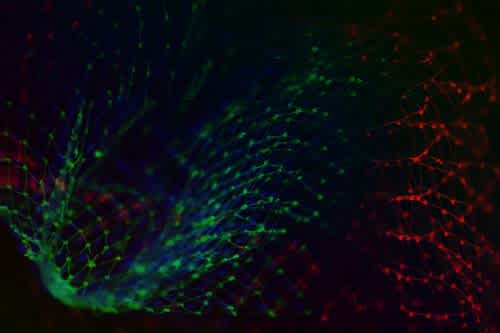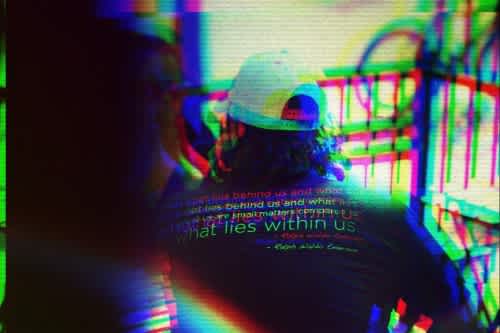Embedded content: https://www.youtube.com/watch?v=ob0dI05Xz8s
...
Background
Having a secret desire to learn to skateboard, I sometimes watch skateboarding videos and recently stumbled upon the "Do a Kickflip" series by Eric Koston. The idea is simple: shout at skateboarders from a car window "Do a kickflip!" (like an asshole) and reward the skater if they do.
If you take these videos at face level, they are just raw entertainment and fun. But if you go bit deeper, it's actually a lesson on how to organically grow and give back to a community. This is most apparent in Tony Hawk's 'Secret Santa' video also posted above.
As a developer at Honeypot, my job is not only to code awesome stuff, but also to promote a positive atmosphere where other developers thrive on my team. I am always looking for inspiration about how to do this, and I wanted to share my insights from this video series about how we can create a positive atmosphere for other developers to grow in fun ways!
1. Challenge yourself
Kickflips are hard. You first have to learn several fundamentals before even attempting. That's kind of the point of the video series is to show how many amazing skaters there are in California. But even when a skater says they can't, Tony gives them an easier challenge and shows almost the same amount of excitement when they succeed.
But, doesn't that defeat the purpose? Why does he settle?
I believe Tony does this because he wants the beginner to feel a connection to the community. Success always feels good, but it is especially important for a beginner who may feel rejected from a community because of a single bad experience.
Challenges can be made in a way that they inspire individuals to grow personally and in a community regardless of whether they succeed or not.
I have actually turned down companies who gave me a coding challenge that was too easy and stopped the interview process with others when they ask for 2+ days of unpaid work without any support. Challenging at the right level is just as important in the engineering community as it is in skating!
2. What if I fail?
When somebody failed the kickflip challenge, the host could have rightfully shouted at them "You suck! Get better!" But this NEVER happens. There are even some episodes where a skater will say something like, "I can't do it, I suck!", to which the host responds something like "No you don't man! Keep going and you'll get it!"
Any professional knows that failure is crucial for success. I take to heart the lessons of Jake the dog:
Embedded content: https://www.youtube.com/watch?v=DN43sCyEanA
"Dude, sucking at something is the first step to being kinda good at something." - Jake the Dog
Unfortunately, sometimes failure is not framed as opportunity in the tech industry. I recently met a developer at a Meetup in Berlin who felt so bad about failing a coding challenge that she stopped applying for jobs. She knew she could have completed the tasks in the challenge, but the novel situation of watching a timer go down while coding freaked her out so much that she got less than 40% correct.
Situations like this break my heart! Nobody consoled this developer after failing the challenge and nobody offered her a way to improve herself for the next time. I told the developer my experience and advice:
You will probably fail your first programming challenges if you are not used to coding under pressure, but this doesn't make you a bad developer! Timed coding challenges are artificial situations that are not representative of your skills or even the real work you will do as a developer.
Failing (coding challenges or whatever) is a normal part of the journey to greatness. I've failed at so many things in my life and probably will fail more in the future because I challenge myself.
3. Keep your ego down (even if you're actually awesome)
Tony Hawk is the one of the greatest skaters of all time. His simple presence is often enough for jaws to drop. Tony could have easily announced who he was at each skate park (when he was dressed as Santa), but he didn't! Of course some people figured out who he was, but Tony tried to keep it a mystery. Why?
I believe it's because he did not want to rely on his name alone to nurture the community. Tony's actions of challenging skaters, giving them high fives, and riding with younger skaters helped grow the skating community much more than just giving autographs. Ok, his celebrity status resulted in some awe-inspired kids, but the majority was earned by giving gear in a playful way and making emotional connections with younger skaters.
Giving back and growing a community is not reserved for experts or celebrities. And being an expert in a field does not mean that you are nurturing that field by simply existing. Supporting a community means taking meaningful actions to serve that community.
You see Tony in this video, but you never see who is behind the camera, who planned the day and who edited all the film afterwards. This is a fairly large production from people who primarily want to give back to the skating community.
I learned from Tony's actions that although it certainly helps, you don't need to have a long list of successful projects or businesses to gain the respect of your colleagues. Your actions earn respect far more than your title or history. Also having fun helps :-P
Code a kickflip!
All this kickflipping inspired me to "Code a kickflip!" 😄
Checkout the codepen to see mine in action:
Embedded content: https://codepen.io/DjRussRuss/full/xxGRWRo
Look ma, no Javascript!
This took me about an hour to code and, I know, it's actually a 360 kickflip, but a normal kickflip just didn't look that cool in a 2D space.
Let's start a movement!
If you are a frontend developer or work with one, shout at them "Code a kickflip!!!" and let me know what happens! #codeakickflip


